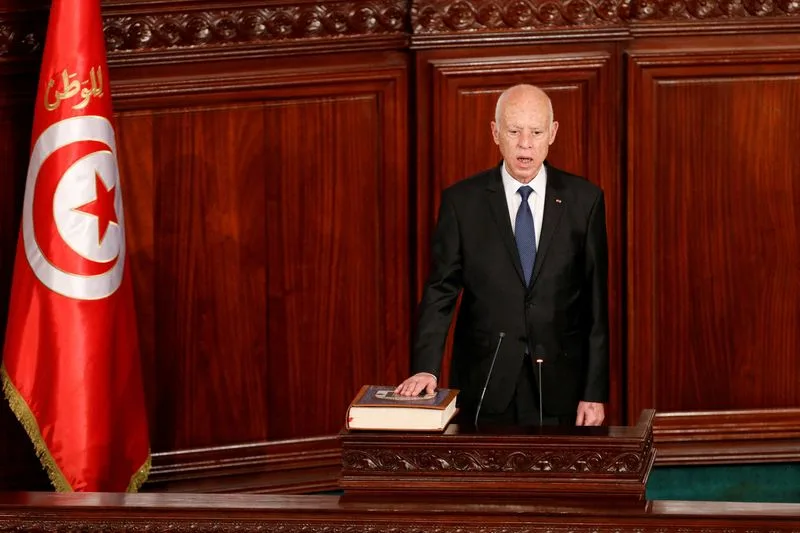
Tunisia’s main trade union, the Tunisian General Labour Union (UGTT), has condemned recent attacks on its headquarters and reaffirmed its independence in the face of mounting political pressure.
The announcement follows an attempted intrusion by unidentified groups on August 7 and subsequent public accusations by President Kais Saied on August 8.
The UGTT, which played a decisive role in Tunisia’s democratic transition and was awarded the Nobel Peace Prize in 2015, called on supporters to participate in a large-scale march on August 21, signaling its readiness to defend workers’ rights and institutional autonomy.
Secretary-General Noureddine Taboubi rejected claims of corruption directed at the union, describing them as baseless.
“These accusations are unfounded.
We call for recourse to justice rather than smear campaigns,” he said, highlighting the union’s commitment to lawful and transparent action despite growing political tensions.
Human rights organizations have expressed concern over the incidents, viewing them as symptomatic of a decline in freedoms since the consolidation of executive power under President Saied in 2021. Analysts warn that attacks on independent institutions such as the UGTT risk undermining the democratic fabric of the country.
The union remains a formidable social force in Tunisia, with the ability to mobilize large segments of both public and private sector workers. Its leaders stressed that the UGTT would continue to play an active role in defending labor rights, promoting social dialogue, and resisting any attempts to weaken its influence in national political and social life.
“This is a critical moment for Tunisia’s civil society,” Taboubi added. “The independence of the UGTT is not negotiable, and we will continue to safeguard the rights of workers while defending the values of democracy and social justice.”
As the country approaches the planned demonstration on August 21, attention is focused on how Tunisia’s authorities and civil society groups will navigate the tension between state power and institutional independence, with the UGTT emerging as a key player in this unfolding political landscape.



